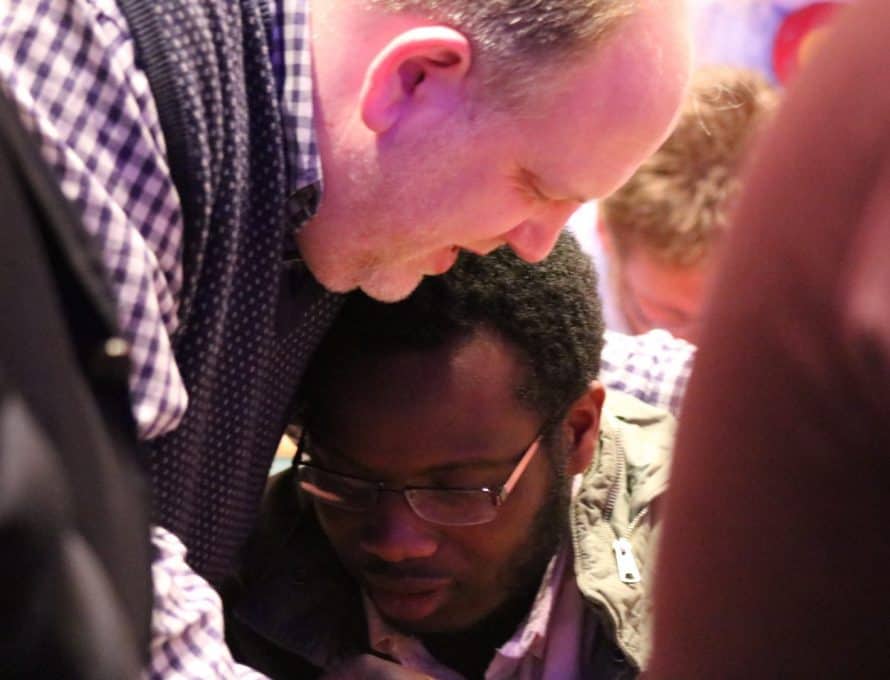A friend taught me years ago the great value of reviewing events. An evaluation has a way of helping you determine future choices. You may determine whether to share with others about the event and future similar events, or you may determine there were simply too many pitfalls for recommendation. Evaluation also helps you find where improvements can be made.
Because we are all human, there is always room for improvement with everything. The only human thing I have ever found that doesn’t need improvement is the redemption that God has provided exclusively through our Lord Jesus. God’s redemptive work for mankind is perfect in every way imaginable.
How about the recent Great Commission Conference held at Ridgecrest Baptist Church in Springfield?
The Baptist way to measure an event is to look at numbers. We have numbers: 686 registered attendees, plus many who visited but did not register. Twenty of our directors of missions brought pastors with them. We hosted 35 vocational evangelists for a meal and are excited about some future partnership opportunities with them. About 150 women shared a lunch and were challenged to be women of God whose choices pronounce the transformation of the gospel within their lives. And more than 90 Circle gospel presentation kits from the North American Mission Board were distributed to pastors who committed to use it in their local context.
Numbers are good – and the numbers were up this year. However, there are some other factors that may be more attuned to the heart of why we do these kinds of events.
First and foremost, there was a “Humble Moment.” It occurred during the Friday night session with John Avant. Dr. Avant told the story of a movement of God’s Spirit in a church he pastored and how it touched a chapel service at Southwestern Baptist Theological Seminary. He explained how the work of God involved repentance, confession of sin, surrender of the will and tears. He told how there was a sense of God’s presence when men and women humbled themselves before the Lord.
At the conclusion of Dr. Avant’s message, without much appeal, the altar began to fill with people hungering, not for an experience but for the Lord to captivate their lives as they confessed fresh surrender to Him.
After a few moments, the builder and boomer generations were invited to find the millennials and gen Xers in the room and pray a prayer of blessing over them. After that, the younger generation prayed a prayer of thanksgiving for the generations who have traveled before them. It was a humble moment where the Lord’s Spirit invaded the premises.
More prayer, singing, confession, repentance, forgiveness, and tears followed. As one described, it was as if the Holy Spirit was orchestrating something transformational, and God’s people simply needed to cooperate with Him. For those who hunger for God to move in a special way, their cup was filled to the brim.
Another phenomenon was the spiritual conversations that spread through restaurants, hotels, and local churches. Such conversations were as natural as breathing air to the participants. Reports from several churches indicate that the sense of God’s moving continues as if driven by a wind.
The intergenerational meeting was refreshing. Prayer with the next generation was impactful. The event caused each generation to rekindle the passion for the common goal of reaching the lost with the gospel of our Lord Jesus Christ. Each generation’s preferences must be nailed to the cross so the Lord Himself is lifted up as supreme.
This event was not like any before it because it addressed from an evangelistic perspective the four issues our government cannot solve. Why was this so important? Because the solutions rest primarily with the church. The four issues are human trafficking, refugee care, orphan/foster care, and racial reconciliation. The people of God were challenged to face these issues and to stare down any lingering fears and demonstrate gospel compassion.
During a platform interview, Senator James Lankford (Okla.) offered to participants a very simple first step in racial reconciliation, “Invite someone of another race to your table for dinner.” The same could be said for each of the other issues, too. If we will take the initiative to stop, eat, and listen, especially to those who are struggling, the Lord wants to do amazing things.
The important takeaways from this event are not limited to three days on the calendar. Every believer and every church has the opportunity to cooperate with the Lord in a journey of personal and community transformation—a transformation that emerges from humble hearts joined together at the foot of the cross.

